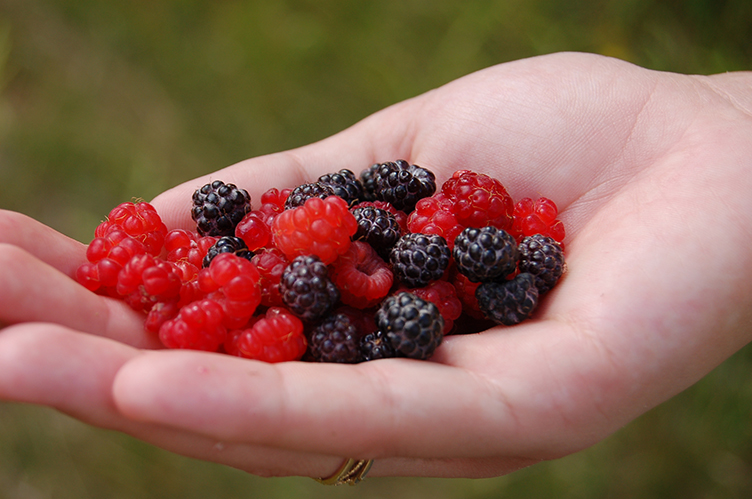Berry season has arrived, ushered in with strawberries and followed by mulberries, raspberries, blackberries and blueberries. In addition to great taste and numerous pie possibilities, berries also are a good source of anthocyanin which helps protect against high blood pressure. This natural compound is also found in red cabbage, purple grapes and eggplant skin. Berries also have antioxidant properties which help reduce inflammation in the body associated with high blood pressure.
Blueberries in particular have been found to help lower borderline unhealthy blood pressure. In a 2015 study of women ages 45 to 65 with early stages of high blood pressure, eating a cup of blueberries each day was found to lower systolic blood pressure by 5mmHg. But don’t think that the whole cup must be consumed at once, they can be added throughout the day to cereal, yogurt, salads, smoothies or used to top waffles or ice cream. The possibilities are endless.
Berries are also connected with better brain health and research has found the compounds found in berries can cross the blood-brain barrier and experts believe eating berries each week can help stave off mental decline. Polyphenolics, chemical compounds found in berries, may also help prevent Alzheimer’s disease by “cleaning up” the build-up of toxins in the brain over time.
Fresh berries are an excellent serving of fruit for diabetics to help control sugar levels. In addition to a sweet taste and plenty of vitamins, fresh berries also contain fiber which make them a good alternative to drinking juice which is higher in sugar. The high fiber and water content of berries can also aid in weight loss by helping you feel fuller.
Eating berries at least twice a week can reduce your risk of developing Parkinson’s Disease. Research published in the journal Neurology found consuming berries rich in flavonoids resulted in a 25 per cent reduction in the chances for developing P.D. Men in particular seem to benefit from the protection flavonoids may offer.
Eating plenty of fresh fruits and vegetables, including berries, can also reduce your risk for having a heart attack. Experts advise older adults (and younger ones too) to “eat a rainbow” of richly and naturally colored foods for optimal health.
A diet rich in flavonoids found in berries, along with plenty of other fruits and vegetables is recommended in diets to reduce risk for developing cancer. Phytonutrients in berry seeds have been studied for their ability to lower cancer risk and according to the National Cancer Institute, antioxidants in berries protect cells from damage caused by free radicals.
To read about more health benefits of blueberries and other berries visit the Medical News Today website at: http://www.medicalnewstoday.com/articles/287710.php .






Add Your Voice
0 Comments
Join the Discussion